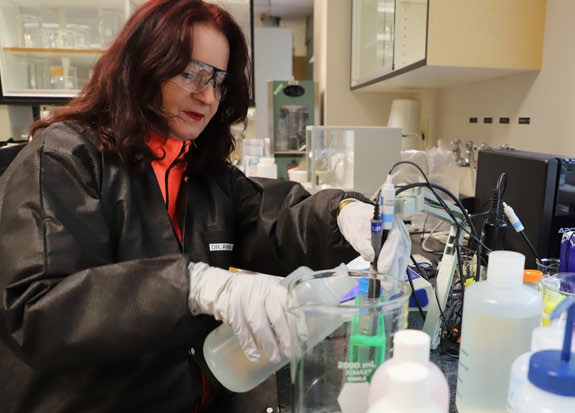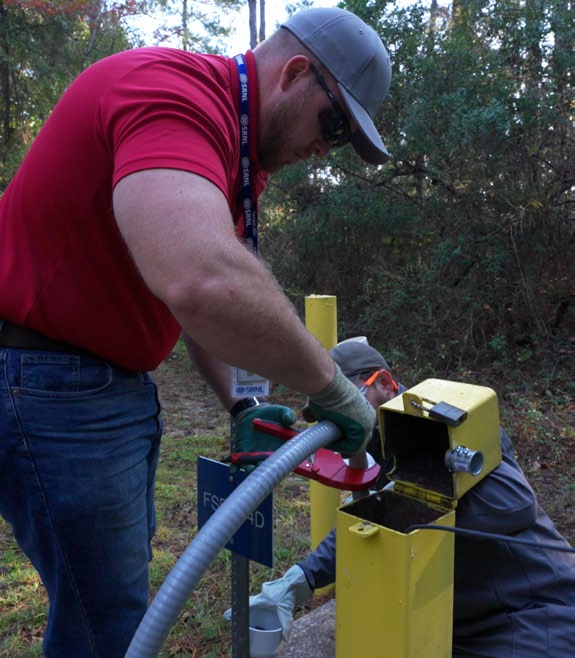Biological Sciences
Biological Sciences
Biological Sciences at SRNL supports all three mission areas: Environmental Stewardship, Energy Resilience, and National Security. SRNL has ongoing work supporting SRS related to Legionella in cooling towers around the site. In addition, the lab supports DOE-EM in the areas of characterization of microbial communities and their impact on contaminant breakdown, microbial radiation resistance, potential for microbial corrosion in storage basins, and contaminant sensing using sensors and biosensors. SRNL currently has projects investigating destruction and toxicity of emerging contaminants, such as perfluoroalkyl substances (PFAS). Many of these areas also cross into the National Security mission area related to biosensor development for non-proliferation type activities.

Researcher Anna Sophia Knox prepares samples from Savannah River Site cooling towers. (photo: Chris O’Neil, SRNL)
Environmental Stewardship
- Environmental microbiology support of SRS and DOE-EM
- Evaluation of stressors from DOD installations and their effects on the populations of ecological species
- Sensor/Biosensor Development for long-term monitoring
- Bioremediation Retrospective for chlorinated solvent contamination across DOE Complex
- PFAS Biodegradation/Biosorption and toxicity studies
- Program to understand microbial radiation resistance
Energy Resilience
- Development of Biomanufacturing Capability at SRNL
- Algal bioprocessing
- Sensor/biosensors for products of interest
- Deployed processes for production of energetic materials
Nuclear Security
- Sensor/biosensor development for nonproliferation activities
- Capture and sensing of radionuclides
- Biomanufacturing/Biotechnology SME support for DOE-IN and NNSA
- Modeling support for National Virtual Biotechnology Laboratory at onset of COVID pandemic

ALTEMIS sensor installation in the Savannah River Site’s F-Basin. (photo: Brad Bohr, SRNS)
SRNL Biological Sciences Resources
- Savannah River Research Campus
- Geochemistry/Geology/Biogeochemistry Labs
- General Microbiology Labs with BSL-2 Capabilities
- Molecular Biology Laboratory
- Advanced Manufacturing Collaborative
- Biomanufacturing and Process Integration Laboratory
Enabling Technologies
- Artificial Intelligence/Machine Learning
- AI/ML applied to Hyperspectral Imagery for Phytoremediation
- ML approach to detect, identify and characterize PFAS compounds from mass spectra
- AI/ML applied to sensor data for rapid identification and localization of changes in massively heterogeneous systems such as pyrolysis and algal oil production processes
- AI/ML enables an automated response to changes in algal bioprocessing systems for functional steering of physical processes such that profitability can be achieved

Wetlands research at the Savannah River Site. (photo: SRNS)